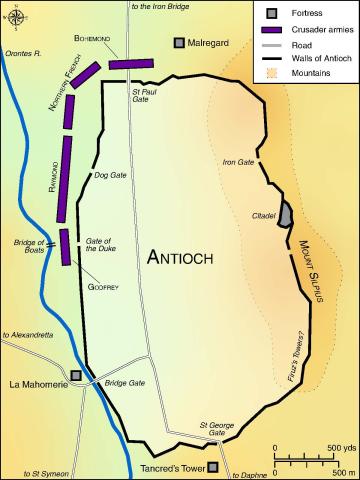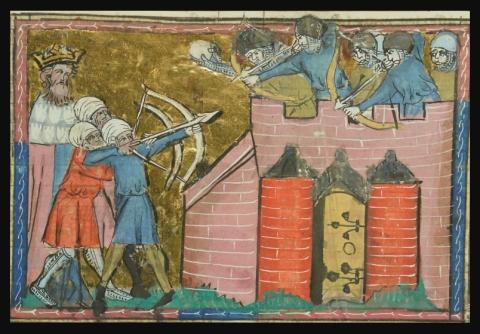Kerbogah Tries to Retake Antioch
[9.26.1] Turcī, dēnique, quī erant seorsum in castellō, undique tam mīrābiliter coangustābant nōs ut, quādam diē, inclūserint trēs mīlitēs ex nostrīs in turrim quae erat ante castellum. Exierant namque gentīlēs et irruerant super illōs tam ācriter ut nequīrent sufferre pondus eōrum. Duo ex mīlitibus exiērunt dē turrī, vulnerātī, et tertius per tōtum diem virīliter dēfendēbat sē dē Turcōrum invāsiōne, tam prūdenter ut in ipsā diē duōs Turcōs strāverit super aditum mūrī, caesīs hastīs. Nam trēs hastae dētruncātae sunt illī, illā diē, in manibus suīs. Illī vērō accēpērunt capitālem sententiam. Erat nōmen illī Hugō Īnsānus, dē exercitū Gosfredī dē Monte Scabiōsō.
notes
vocabulary
seorsum: separately
coangustō: to confine, restrict (CL); to hem in, attack (ML)
caedō caedere cecidī caesum: to strike; destroy (OLD 6)
hasta –ae, f: spear, lance


